- Home
- Blake Banner
The Storm - An Action Thriller Novel (Omega Series Book 3) Page 4
The Storm - An Action Thriller Novel (Omega Series Book 3) Read online
Page 4
Five
I helped myself to more coffee, stared at it in the cup for a bit, and then sipped it.
“Charles, just because of who he is, Bat Hays is one of the most effective, professional killers you are ever likely to meet. I know because I have seen him do it. Do you mind if I smoke?”
“Be my guest. I’ll join you.”
We lit up. I took a drag and started talking again.
“There were four of us. We tend to operate in units of four. There was myself, Hays, and two others. We were in the jungle, I can’t tell you where. We’d taken up a position by the river, waiting for two boats. We had intel that they would be loaded with drugs, which were to be exchanged for weapons. Our task was to sink the boats and kill the men onboard. No prisoners. No survivors.
“We waited twenty-four hours. On the second afternoon, we heard the boats approaching. They were big, slow launches. We saw them coming from two hundred yards away. We were armed with a grenade launcher, an AW 50 cal. And C8 Carbines. They were sitting ducks. They had no idea we were there. They didn’t stand a chance.”
He was frowning, wondering where I was going with the story. I tapped ash and looked him in the eye.
“As the boats entered the killing field, the guys were waiting on the instruction to open fire. That was when we saw that as well as men and drugs, the boats were also loaded with women and children. There must have been at least twenty women of all ages, and a dozen kids. For a second, we froze. There had been no hint of this in the intelligence we had received. Not one of us there was going to open fire, but it was Bat Hays who put it into words. He turned to me and he said, ‘You can fuckin’ court martial me if you like, but the day the British Army makes war on women an’ children is the day I become a fuckin’ Frenchman!’”
He tried to smile at my cockney accent, but it faded at the implication of my words. Before he could answer, I went on.
“He was serious. He could have faced court martial, or worse. But he would not have opened fire on a woman or a child, unless his life or that of his comrades were in direct peril. That is not something I can take to court, and it’s not something I expect you to take at face value, on my say so. But it does give you the measure of the man.”
He studied me for a moment. “I assume there is more than that. The way a man behaves on the battlefield can be very different to how behaves in his private life. We both know that.”
I nodded. “Sure. I just wanted you to know what kind of man we are dealing with. Now, here is how I know, beyond any doubt, that Bat Hays did not commit this murder. I have, personally, seen Hays execute a dozen kills in non-combat situations. Like any man trained by the Regiment, he is as good as it gets. It is inconceivable that he would have carried out the kill in such a sloppy, unprofessional way.”
I saw his cheeks color and his eyes shine. I knew my phrasing was brutal, but I had to make him see the truth of what I was saying.
“Even if his personality could have changed so much for him to do this, it is impossible that he would have left prints at the scene. It is impossible that he would have left his prints on the weapon. And, Charles, if Bat had taken a shot at you, he would not have missed. Whoever broke into your house that night and killed your wife, there is no way it was Bat Hays. I may not have proved it to you yet, but I know it for a fact.”
Carmichael’s moment of anger had passed and he was staring into his coffee cup, listening to what I was saying. Now he crushed out his cigarette and sighed deeply.
“I know that what you are saying is most probably true, Lacklan. It makes a lot of sense. I know the reputation of the Regiment. Hell, our own Delta Force was modeled on it, after Charlie Beckwith served with you guys in Malay. But for crying out loud, Lacklan! His prints are on the gun. They are in the bedroom and they are in my living room! How do you account for that?”
I shook my head. “That is not conclusive, Charles. It’s far from an impossible frame.”
He thought for a moment, frowning deeply. “Look here, I have a proposition to put to you. I have nothing personal against your man. I don’t even know him. But what I want is for my wife’s killer to be caught. Do you think you can do that?”
“Yes.”
“Then let me employ you. We’ll call you a consultant, with specialist knowledge of the accused’s background. I carry some weight in this town and I’ll tell Jackson to cooperate with you, give you access to their investigation and their file, share what information they have.” He sat forward and stared hard at me. “I’ll get you anything you need. Find my wife’s killer, Lacklan.”
“You have a deal. What I need is to see the crime scene.”
His face went pale. “It hasn’t been touched since that night. I’ll show you.”
“You don’t have to do that. Just tell me where it is. I’ll find it.”
He hesitated. “It’s up the stairs. There is a galleried landing. The master bedroom is down on the left. It still has the police tape…”
He looked suddenly old and drawn, grateful to put off for one more day having to confront the room. I sighed.
“I’ll need you to show me the drawing room and walk me through what happened.”
“I know. Yes. That’s not a problem. I just can’t bear to think what she must have gone through.”
I left him there and went back to the checkerboard hall. It was a red-carpeted oak staircase that split into two right angles after ten steps and then rose on both sides to a gallery that looked down over the entrance hall under a domed cupola. Two passages fed off the gallery into each wing of the house. I followed the one on my left into the south wing.
The master bedroom was the last door on the right. It was dimly lit, and crisscrossed with shadows from the arched window at the end of the corridor. A strip of yellow police tape was strung across it. I pulled it down and opened the door.
I have seen my share of carnage in my life, more than most people. What I saw, and smelled, then, stopped me in my tracks. It was a large room. Dim, gray light filtered in from a tall, glass-paneled door on the left that led out onto a small terrace. Another door on the right opened to an en suite bathroom. The floor was parquet, and strewn with Persian rugs. There were two hand-carved, free-standing wardrobes against the wall. Directly in front of me, about fifteen or twenty feet away, was a heavy, oak, four-poster bed.
At first I thought that the duvet and the sheets were burgundy, but as the stench hit me, I realized that they was saturated with blood. In the two weeks since the killing, he had not had the room cleaned, and in the intense humidity preceding the storm, the bedding had not yet fully dried. I closed the door behind me and stood absorbing what there was to see, and smell.
There was a lot of blood, too much, so much that it had spilled onto the floor. I could see where the handle and the glass on the terrace doors had been dusted. There were prints, presumably hers, Carmichael’s, and Bat’s.
I approached the bed. The quilt and the sheets were drenched from shoulder-height down to about mid-thigh. Slightly more than two feet down from the pillow, the mattress had been punctured. That in itself was odd. I examined the perforations and decided they looked like closely grouped bullet holes, though they had later been torn in order, I guessed, to extract the slugs. On an impulse, I took my Swiss Army knife and cut a piece of the blood-soaked sheet and put it in my wallet.
I pulled the duvet back over the sheet and found the same holes, only neater. There were four of them, very closely grouped. Whoever killed her was a good shot, and his hands had not been shaking. He had control of his weapon, and of his emotions. He had not shot her in the head, though he was clearly capable of it. He had deliberately shot her in the belly. One of the slowest, most painful deaths possible.
If it was an execution, it was a personal one.
I looked around a bit more, then went back downstairs and found Carmichael where I had left him. He looked embarrassed and kept his eyes on the tabletop.
“I haven’t�
��” He sighed noisily through his nose. “I haven’t been able to…”
“I know, it’s hard to face. You want me to take care of it?”
He glanced at me and frowned, but there was gratitude in his eyes. “No. No, thank you. Sooner or later, I have to face what has happened. I’ll take care of it today.”
“James will help you if you let him.”
He nodded.
I said, “I need to see where you exchanged fire.”
He stood. “It’s through here.”
The doors to the drawing room were opposite the library, and made of the same, highly polished walnut. The room was long and broad, running from a large, bow window at the front of the house to tall French doors at the back. These led onto the same, ample lawn I had seen from the breakfast room. There was a large Georgian fireplace set into the far wall, surrounded at a distance by comfortable, modern armchairs and a sofa. There were original impressionists on the walls and an eclectic selection of antique furniture. On a credenza beyond the fireplace there was a silver tray with a collection of decanters and glasses.
I looked around. It didn’t take me long to find the bullet holes in the walls. One had gouged out a chunk of the chimney breast, about seven feet off the ground. Another had narrowly missed what looked like an original Chagall over the credenza.
“Those two were mine,” he said.
“You want to walk me through it?”
“It was about eleven forty-five. I’d been into town for dinner. Sarah was out. She was a great lover of jazz. I don’t enjoy it myself. My taste runs more to the baroque and the renaissance. So, I had been out. When I got home, I came into the drawing room, intending to have a nightcap. I stepped in and switched on the light. He was there.”
He pointed down toward the Chagall.
“How was he dressed?”
He stared at me a moment in surprise. “Um… He was wearing dark pants, jeans perhaps. A dark sweater, or a sweatshirt, I am not sure. It was very sudden and unexpected. And he had on a ski mask or a balaclava. I remember he was armed with a revolver and he fired at me. There is the shot, in the wall.”
He pointed behind him. The bullet hole looked about right for a .38. It was above and to the right of the door, about a foot from another painting. I pointed at it and frowned.
“That’s an original Picasso.”
“My grandfather was a fanatic of modern art. He bought that before Picasso was world famous. I have no idea what it is worth now.” He looked back at the sideboard, where the shooter had stood. “I was slow to react. To be honest I was stunned. My mind was reeling. He fired again before I could draw my weapon.”
“You were armed.”
“I always carry. The second shot is over here…” He walked toward the bow window and pointed to a hole in the wall, about eight feet off the floor. I followed and stood next to him. I ran my hand over the wooden frame of the bow, and examined the small panes of glass.
“How old is this window, Charles?”
Again he looked surprised. “It’s original, from when the house was first built for my great, great…” He made an ‘and so on’ gesture, “Back around the time of the War of Independence. A little earlier than that.”
“Superb.”
He nodded. “So, I managed to react. I pulled my piece and let off three shots. One over the fire, another narrowly missed the Chagall and the third knocked out one of the panes in the French doors, missing him in the process. He got out that way and made off across the lawn, into the woods. My first thought, as you can imagine, was Sarah. I ran upstairs and…” He blanched. “There she was, in that ghastly…”
“I have to ask, Charles, forgive me. Did you check to see if she was dead?”
“Of course, immediately. It was my first thought. But she was, quite obviously, dead. I called Jackson. I believe it was eleven fifty-five, according to the police report.”
I went and stood by the door, recreating the scene in my mind. The killer would have been six feet from the fireplace, just beyond the armchair, with his back to the drinks tray, about twenty or twenty-five feet from Carmichael. He let off one shot. Carmichael dodged to the killer’s right, he let off another shot, then turned and ran. Meanwhile, Carmichael had pulled his own piece and fired once, hitting the fireplace, twice, missing the Chagall, three times, missing the killer and shattering a pane of glass in the French doors.
“If it had been Hays, the moment you stepped through the door he would have double-tapped you in the chest. The higher the pressure—the more intense the situation—the more automatically the training kicks in. It’s like Pavlov’s dogs. Surprise him and he will double tap to your chest, without thinking. It’s an autonomic response.” I gestured at the walls. “Forgive me, but this shooting is shit. This is the wild shooting of a panicking amateur.”
He looked embarrassed. “I… It’s been a long time…”
“You’re not a professional killer, Charles. But Bat Hays is.”
He nodded. “I get it.”
“Who were your wife’s enemies, Charles?”
He spread his hands wide and shook his head. “That’s what Jackson asked me. I want to say she didn’t have any, but obviously, she did. Everybody loved her, Lacklan. She was an angel. She was the sweetest, kindest, most humane person I have ever met.”
“She was younger than you?”
“Considerably.” He walked over to the fireplace and dropped into one of the large armchairs. “I’m fifty-nine. She was forty, and looked five years younger.”
“She used to go to jazz clubs on her own.”
“I know, I know what you’re thinking, and don’t imagine you are the first person to say it to me—especially in a community like this. But I trusted her implicitly, and if there had been anything going on, believe me, in this town, I would have heard about it.” He shrugged. “But long before I heard about it, she would have told me. We had that kind of relationship.” He smiled, then laughed. “I knew when I married a beautiful woman twenty years younger than me that sooner or later, she would feel tempted by a younger man. That was something I just had to accept. As it turned out, that never happened. We were in love. It’s that simple.”
I leaned on the back of the chair opposite him, looking down into his face. “It’s that simple for you, and maybe it was that simple for her. But if some guy was in love with her, maybe it wasn’t that simple for him.”
He nodded. “That’s what Jackson said. He believes that Hays fell in love with her, that she turned him down, and he killed her.”
“Maybe his theory is right, but his suspect is wrong.” I looked at my watch. “I need to get back. Listen, does James live on the property?”
“Not exactly. James has a cottage on the grounds, at the back of the house. Sally, the maid you saw earlier, lives in town.”
“He didn’t hear anything?”
He shook his head. “No, he’s somewhat less than a quarter of a mile away.”
He promised me again that he would talk to Detective Jackson about cooperating with me. Then he called James and had him drive me back to the Soniat. On the way, I asked him, “You didn’t hear anything that night, James, nothing odd or out of the ordinary?”
He looked real upset. “I sure as hell wish I had, Cap’n. But that house is made of solid stone. Whatever goes on in there, stays in there. Only thing I heard that night was a pig squealing like it was being murdered—if you’ll forgive the term.”
“A pig?”
“Yeah, a pig, screamin’ like hell.”
“What time was that?”
“Oh, that would have been about eleven o’clock. Before any of this stuff went down. Besides, it was out by the corrals, where they keep the livestock.”
I thought about it. “What time did you go home?”
“Mrs. Carmichael went out ’bout six, and Mr. Carmichael said he was gonna eat out, so he sent us home just before eight.”
Outside the hotel, he opened the door for me and I cli
mbed out. I paused, looking up at the sky.
“A pig?”
“It was a pig, Cap’n, screamin’ like crazy. Didn’t last long, just a few minutes. But I’m pretty sure it ain’t nothin’ important.”
He smiled and I nodded.
I watched him drive away, back toward Dauphine Avenue, and wondered about Sarah. The sky was still black, and the temperature felt like it was climbing.
Six
I went up to my room and stood under the shower for five minutes. Louisiana is never what you’d call cold, if you come from New England. But the close humidity and the climbing temperatures in Burgundy right then were what you’d expect from the equator, in summer.
I changed my clothes, had some lunch, and drove to the police station. The winds had dropped and there was an eerie, claustrophobic stillness in the air.
Detective Jackson was expecting me. The desk sergeant told me to go right ahead.
His door was open and he looked up as I stepped in. He leaned back in his chair and sighed.
“You’re determined to make my life a misery, Walker.”
“I’m determined to make sure Hays doesn’t go down for a murder he didn’t commit.”
“Yeah, yeah, yadda yadda. Siddown.” He pointed to the chair opposite him and I sat. He picked up a file. It wasn’t very thick, and he tossed it across the desk to me. “I don’t know how you did it, Walker, but you sold the old man on your story.”
I opened the file and started leafing through it. I spoke as I scanned the pages.
“If Hays had done this job, you would have a double homicide on your hands, and no suspect. It’s that simple.”
I paused, reading. The revolver had been recovered in the woods at the back of the house. I laughed quietly.
“What’s funny?”
I looked up and held his eye. “Tell me something, the slugs you recovered from the mattress and the slugs you pulled from the wall in the drawing room, were they from the same weapon?”
“Yeah, ballistics showed they were a match.”
“So here’s something I’m having trouble with, Jackson.”

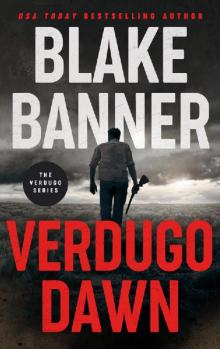 Verdugo Dawn
Verdugo Dawn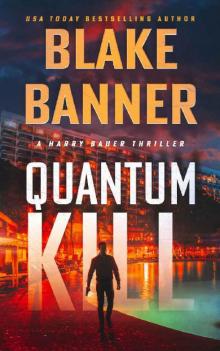 Quantum Kill (Cobra Book 4)
Quantum Kill (Cobra Book 4)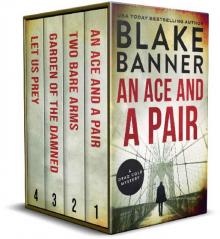 Dead Cold Mysteries Box Set #1: Books 1-4 (A Dead Cold Box Set)
Dead Cold Mysteries Box Set #1: Books 1-4 (A Dead Cold Box Set)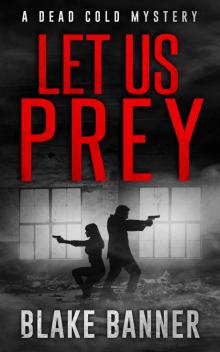 Let Us Prey
Let Us Prey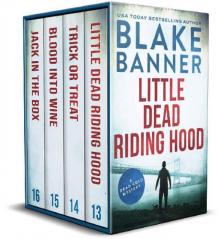 Dead Cold Mysteries Box Set #4: Books 13-16 (A Dead Cold Box Set)
Dead Cold Mysteries Box Set #4: Books 13-16 (A Dead Cold Box Set)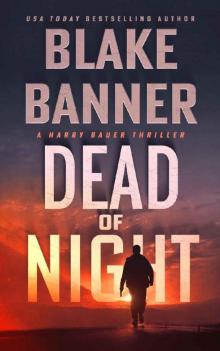 Dead of Night
Dead of Night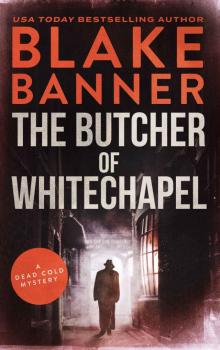 The Butcher of Whitechapel: Dead Cold Mystery 12
The Butcher of Whitechapel: Dead Cold Mystery 12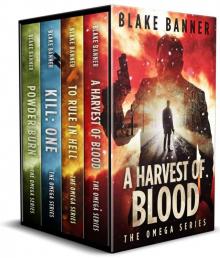 Omega Series Box Set 2
Omega Series Box Set 2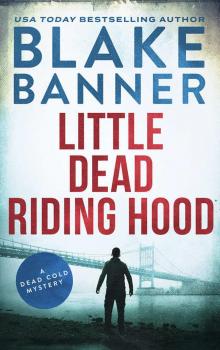 Little Dead Riding Hood: Dead Cold Mystery 13
Little Dead Riding Hood: Dead Cold Mystery 13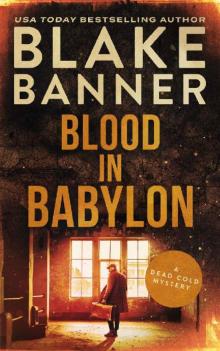 Blood in Babylon
Blood in Babylon Powder Burn
Powder Burn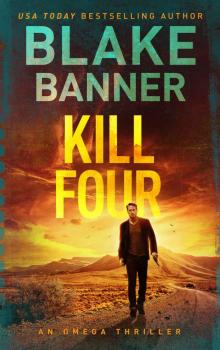 Kill Four
Kill Four Omega Series Box Set 3
Omega Series Box Set 3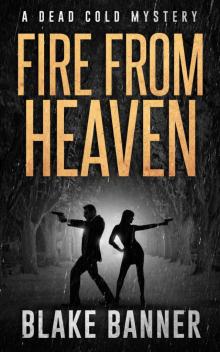 Fire From Heaven: Dead Cold Mystery 9
Fire From Heaven: Dead Cold Mystery 9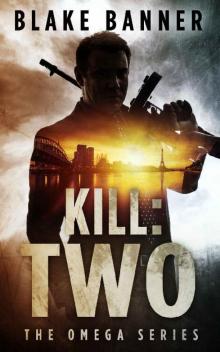 Kill - Two
Kill - Two Omega Series Box Set 1
Omega Series Box Set 1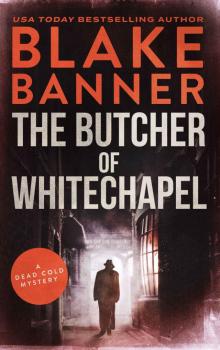 The Butcher of Whitechapel
The Butcher of Whitechapel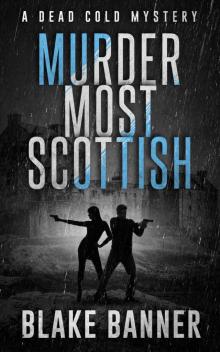 Murder Most Scottish
Murder Most Scottish Dead Cold Mystery Box Set 3
Dead Cold Mystery Box Set 3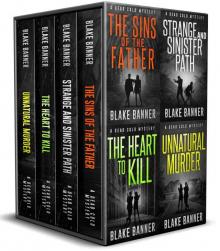 Dead Cold Mysteries Books 5-8
Dead Cold Mysteries Books 5-8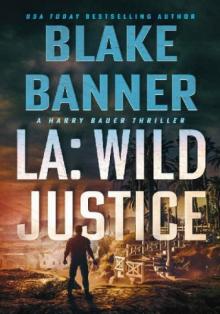 LA
LA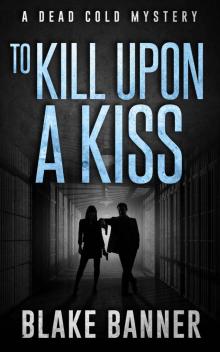 To Kill Upon A Kiss: Dead Cold Mystery 10
To Kill Upon A Kiss: Dead Cold Mystery 10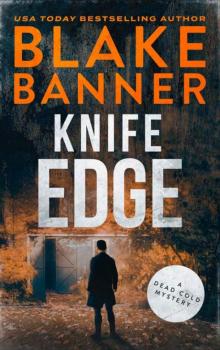 Knife Edge (A Dead Cold Mystery Book 27)
Knife Edge (A Dead Cold Mystery Book 27)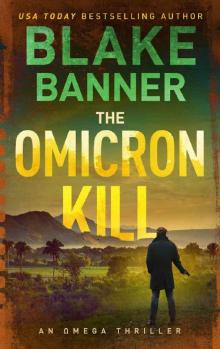 The Omicron Kill - An Omega Thriller (Omega Series Book 11)
The Omicron Kill - An Omega Thriller (Omega Series Book 11)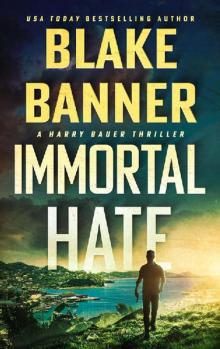 Immortal Hate (Harry Bauer Book 5)
Immortal Hate (Harry Bauer Book 5)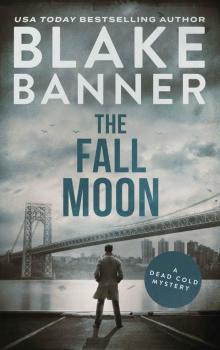 The Fall Moon
The Fall Moon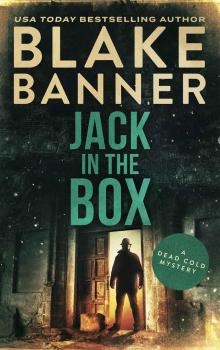 Jack in the Box
Jack in the Box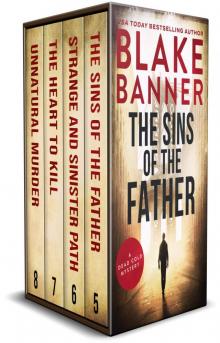 Dead Cold Mystery Box Set 2
Dead Cold Mystery Box Set 2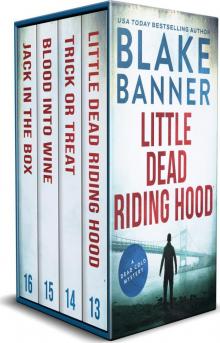 Dead Cold Mystery Box Set 4
Dead Cold Mystery Box Set 4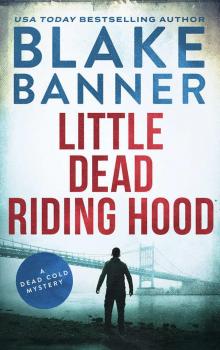 Little Dead Riding Hood
Little Dead Riding Hood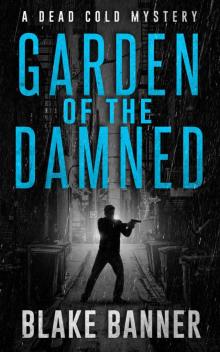 Gardened of the Damned
Gardened of the Damned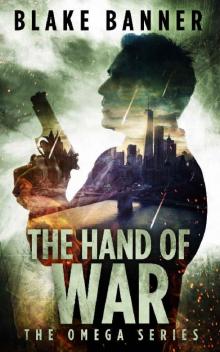 The Hand of War
The Hand of War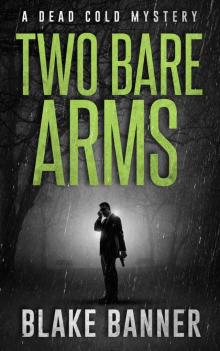 Two Bare Arms
Two Bare Arms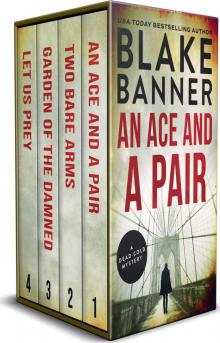 Dead Cold Mystery Box Set 1
Dead Cold Mystery Box Set 1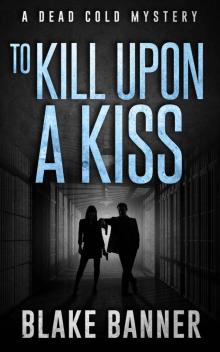 To Kill Upon A Kiss
To Kill Upon A Kiss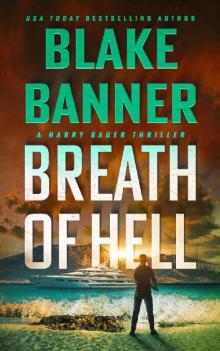 Breath of Hell (Harry Bauer Book 8)
Breath of Hell (Harry Bauer Book 8)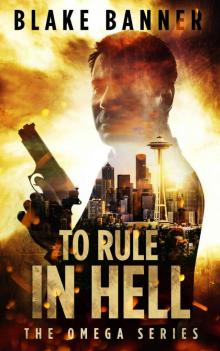 To Rule in Hell
To Rule in Hell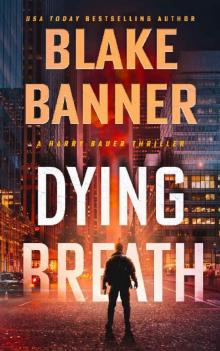 Dying Breath (Cobra Book 2)
Dying Breath (Cobra Book 2)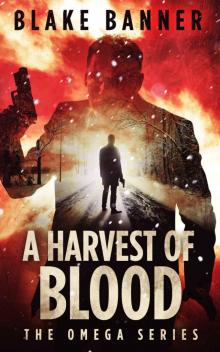 A Harvest of Blood - An Action Thriller Novel (Omega Series Book 5)
A Harvest of Blood - An Action Thriller Novel (Omega Series Book 5)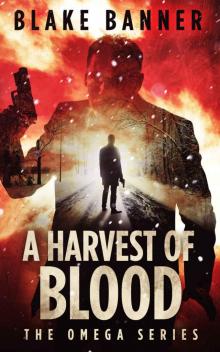 A Harvest of Blood - An Action Thriller Novel
A Harvest of Blood - An Action Thriller Novel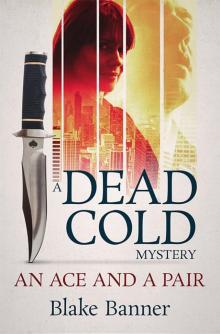 Ace and A Pair: A Dead Cold Mystery (Dead Cold Mysteries Book 1)
Ace and A Pair: A Dead Cold Mystery (Dead Cold Mysteries Book 1) Omega Series Box Set 3: Books 8-10
Omega Series Box Set 3: Books 8-10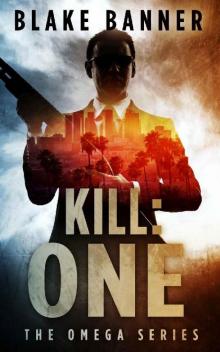 Kill One_An Action Thriller Novel
Kill One_An Action Thriller Novel The Storm
The Storm Double Edged Blade
Double Edged Blade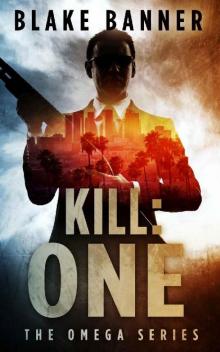 Kill: One - An Action Thriller Novel (Omega Series Book 7)
Kill: One - An Action Thriller Novel (Omega Series Book 7)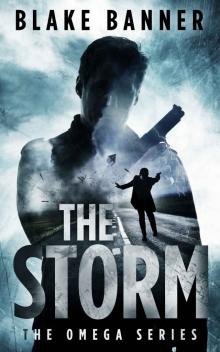 The Storm - An Action Thriller Novel (Omega Series Book 3)
The Storm - An Action Thriller Novel (Omega Series Book 3) Double Edged Blade - An Action Thriller Novel (Omega Series Book 2)
Double Edged Blade - An Action Thriller Novel (Omega Series Book 2)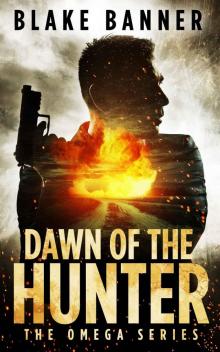 Dawn of the Hunter
Dawn of the Hunter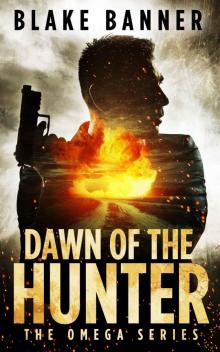 Dawn of the Hunter - An Action Thriller Novel (Omega Series Book 1)
Dawn of the Hunter - An Action Thriller Novel (Omega Series Book 1)